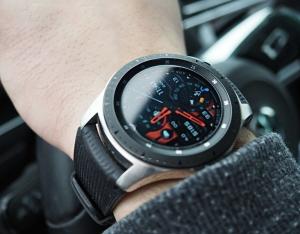Chicago Entrepreneur Dino Miliotis Teams up with OPIAID
Tech Collaboration is Harnessing the Power of AI to Combat the Opioid Epidemic
CHICAGO , ILLINOIS , UNITED STATES, February 20, 2024 /EINPresswire.com/ -- “Today, we are pleased to announce a groundbreaking collaboration between artificial intelligence (AI) technology and Medically Assisted Treatment (MAT) programs, poised to revolutionize addiction care, and I’m thrilled to be a part of it,” says Dino Miliotis, renowned entrepreneur, speaker, and now, spokesman for NC-based data science company, OpiAID.
Miliotis, a Chicago native, is best known as the inventor of an all-natural insect repelling bracelet, Bug-Ban. Nearly three decades ago, he got his break showcasing his invention and marketing savvy on the Oprah Winfrey Show.
“I’ll never forget that day,” says Miliotis. “The exposure completely changed my life, and I’m forever grateful.”
But fame and fortune came at a price, and Miliotis fell into a downward spiral of addiction. As a recovering addict, Miliotis documents his life journey and road to recovery, from a more than 20-year battle with alcohol and substance use, in his memoir, ‘There Is No Box.’ Since his recovery, Miliotis has traveled the country helping to inspire thousands struggling with addiction.
“As much as I’ve tried to help, there’s still a record number of people beyond my reach, especially those affected by fentanyl” says Miliotis. “Behind the faces were stories of pain, loss, and shattered lives. Opioid abuse not only affects the individual struggling with addiction but also ripples out to their loved ones, healthcare providers, first responders, and communities at large. Families are torn apart, careers are derailed, and futures are extinguished prematurely due to the grip of addiction. It’s truly an epidemic.”
The CDC reported that opioids were involved in nearly 70% of all drug overdose deaths in the United States. Examples of opioids include morphine, codeine, oxycodone, heroin, methadone and fentanyl. Fentanyl is a synthetic opioid that is up to 50 times stronger than heroin and 100 times stronger than morphine.
According to The Health Resources and Services Administration (HRSA) more than 130 people a day die from opioid-related drug overdoses.
“I believe estimates are even higher than that,” says Miliotis. “Some sources put the death toll at one every four minutes! It’s completely unacceptable. We need solutions, not just point at the problem!”
Then in 2023, a chance meeting with OpiAID’s founder, David Reeser, sparked a conversation that soon evolved into a collaboration merging innovative tech solutions with savvy marketing strategies.
“OpiAID’s mission to fight this epidemic aligned so perfectly with mine” says Miliotis. “I just had to be part of it, so I jumped at the chance to get involved.”
North Carolina-based OpiAID, led by its founder, Reeser, is a data science company that has been working on making addiction treatment safer and more effective, offering decision support technology to clinicians in Medically Assisted Treatment (MAT) also referred to as Medication for Opioid Use Disorder (MOUD), leading to better clinical outcomes.
MAT has long been recognized as a cornerstone of effective opioid addiction treatment, combining medications with counseling and behavioral therapies to address the complex nature of substance use disorder. Now, AI-powered tools are enhancing the efficacy and accessibility of MAT, empowering healthcare providers and patients alike.
Using OpiAID’s sophisticated algorithms and predictive analytics, AI algorithms analyze vast amounts of data to personalize treatment plans, and predict patient outcomes with unprecedented accuracy.
“By leveraging real-time patient data and continuously learning from treatment outcomes, the AI enables healthcare providers to tailor MAT [MOUD] interventions to the unique needs of each individual, maximizing effectiveness and minimizing risks” says Reeser.
OpiAID’s research began in 2020 and the company was awarded a $2.8 million “Fast Track” grant from the National Institute on Drug Abuse (NIDA). Recently, OpiAID received the prestigious NC Tech Association award for ‘Best AI and Data Analytics’ in 2023.
The company’s AI-driven decision support platform is also helping to expand access to MAT in underserved communities, breaking down barriers to care and reaching those who might otherwise struggle to access treatment. By partnering with other healthcare providers who deliver virtual consultations, monitor patient progress remotely, and provide ongoing support, OpiAID believes this platform collaboration will transform the delivery of addiction care in the digital age.
In addition, the company has created an application that runs with wearable devices. Reeser believes utilizing wearable devices will be “a gamechanger.”
Studies suggest that a significant portion of people struggling with substance dependence may not seek treatment due to various reasons, including stigma, denial, fear of legal consequences, or lack of awareness about available resources. These findings suggest that a wearable device would expand both reach and depth of care.
“The ultimate goal is to provide timely and actionable data that will allow for just-in-time interventions that could save lives” says Reeser.
“For me, OpiAID’s tech application is endless“ says Miliotis. “But like all things technical, it must be relatable and easily understood by ordinary people, just like me. That’s where I believe I can help raise awareness.”
“Who better to promote our mission, or the use of a wearable smart device, than the person [Miliotis] who invented the ‘bracelet’ [Bug-Ban],” says Reeser. “He literally promoted the use of wearables to millions around the world almost 30 years ago, which, if you think about it, is such forward thinking—That’s exactly the type of person we want to collaborate with.”
OpiAID is currently seeking FDA clearance for its technology. For more information on OpiAID or to contact the team, visit https://opiaid.ai/
Clarence Jordan
Oracle Group
email us here
Legal Disclaimer:
EIN Presswire provides this news content "as is" without warranty of any kind. We do not accept any responsibility or liability for the accuracy, content, images, videos, licenses, completeness, legality, or reliability of the information contained in this article. If you have any complaints or copyright issues related to this article, kindly contact the author above.



